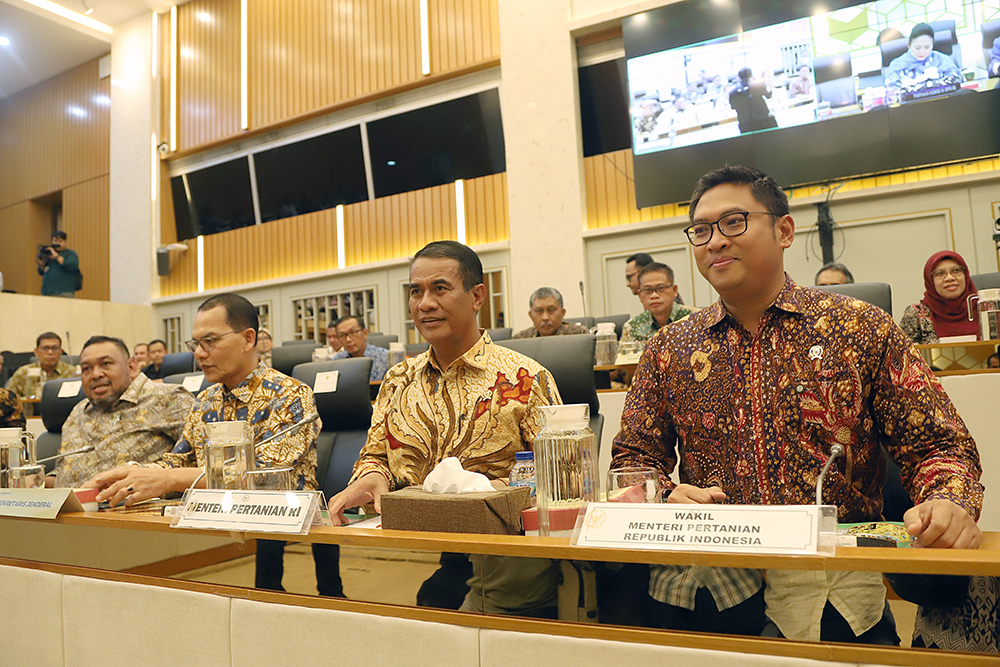Agriculture Minister Reveals $210 Million Loss Due to Fake Fertilizer Distribution
In a recent disclosure, Indonesia's Agriculture Minister, Andi Amran Sulaiman, unveiled a significant issue affecting the nation's agricultural sector: the distribution of counterfeit fertilizers. This malpractice has resulted in substantial financial losses for both farmers and legitimate fertilizer producers, amounting to approximately Rp3.2 trillion (around $210 million).
The Unveiling of the Counterfeit Fertilizer Network
Following a Working Meeting with the State Financial Accountability Agency (BAKN) of the House of Representatives, Minister Sulaiman reported that five companies have been identified and proven to be distributing fake fertilizers in the market. These companies have been referred to law enforcement agencies for further investigation and legal proceedings. The minister emphasized the detrimental impact of these counterfeit products on the agricultural community, stating, "There are fake fertilizer mafias from five companies; we have handed them over to the police. These companies have harmed farmers by Rp3.2 trillion."
Modus Operandi of the Counterfeiters
The fraudulent activities were facilitated through collaborations between external parties and certain individuals within the Ministry of Agriculture. These internal actors allegedly accepted bribes totaling Rp10 billion to aid in the distribution of substandard fertilizers. Investigations revealed that the quality of these fertilizers was deliberately reduced by up to 30%, significantly diminishing their effectiveness. Minister Sulaiman elaborated, "Their method involves cooperation between external parties and individuals within the Ministry of Agriculture. They demand money amounting to Rp10 billion. This is a new finding, across Indonesia, but predominantly in Java."
Government's Response and Measures Taken
In response to these findings, the Ministry of Agriculture has taken decisive action by suspending 11 officials involved in the procurement and distribution of these counterfeit fertilizers. These individuals, ranging from echelon II and III officials to staff members, have been relieved of their duties pending further investigation. Minister Sulaiman affirmed the ministry's commitment to accountability and integrity, stating, "We have deactivated 11 people, including suspects from other ministries."
The government is also implementing stricter regulations and oversight mechanisms to prevent the recurrence of such fraudulent activities. This includes enhancing the monitoring of fertilizer distribution channels and enforcing stringent quality control measures to ensure that only certified products reach the farmers.
Impact on Farmers and the Agricultural Sector
The distribution of counterfeit fertilizers has had a profound negative impact on farmers, leading to reduced crop yields and financial instability. The use of substandard fertilizers compromises soil fertility and plant health, resulting in lower agricultural productivity. This situation not only affects the livelihoods of individual farmers but also poses a threat to the nation's food security and efforts towards achieving self-sufficiency in food production.
Conclusion
The revelation of this counterfeit fertilizer network underscores the critical need for vigilance and integrity within the agricultural supply chain. The government's proactive measures aim to safeguard the interests of farmers and uphold the quality standards essential for sustainable agricultural development. Continued collaboration between authorities, industry stakeholders, and the farming community is vital to eradicate such malpractices and ensure the prosperity of Indonesia's agricultural sector.
Read More






 Wednesday, 04-02-26
Wednesday, 04-02-26







